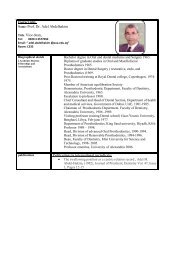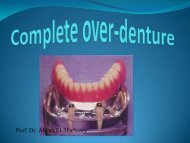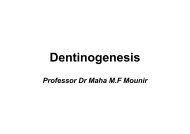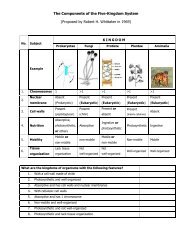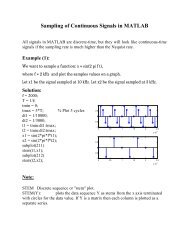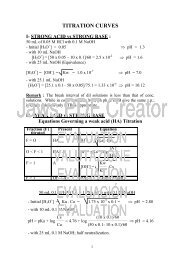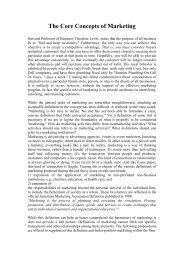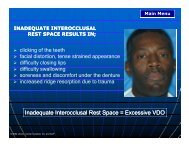BCM 112 BIOCHEMISTRY I âThin-Layer chromatography (TLC)â
BCM 112 BIOCHEMISTRY I âThin-Layer chromatography (TLC)â
BCM 112 BIOCHEMISTRY I âThin-Layer chromatography (TLC)â
Create successful ePaper yourself
Turn your PDF publications into a flip-book with our unique Google optimized e-Paper software.
Application and importance of Thin-<strong>Layer</strong> Chromatography In<br />
Clinical Chemistry :<br />
1. Lipid analysis, separation of different lipid classes from animal and<br />
plant tissues;<br />
a- simple lipids i.e. cholesterol esters, triglycerides, free fatty<br />
acids, cholesterol and diacylglycerols.<br />
b- Complex lipids such as phospholipids e.g. lecithin and<br />
sphingomyelin (a semiquantitative ratio of these compounds in<br />
amniotic fluid is widely used as an indicator of foetal lung maturity).<br />
2. Analytical <strong>TLC</strong> is used in drug analysis, in cases of acute poisoning<br />
3. Thin layer <strong>chromatography</strong> (<strong>TLC</strong>) is very useful to chemists as an<br />
analytical technique to separate and identify the compounds in a<br />
mixture.<br />
4. Detection of abnormal components in inborn errors of metabolism in<br />
the neonatal population e.g. inborn errors of carbohydrate metabolism.<br />
<strong>TLC</strong> has been used to detect the presence of abnormal sugars in<br />
blood, urine or faeces.<br />
5. Amino-aciduria can be investigated in urine to detect amino acids by<br />
using two dimensional <strong>TLC</strong> system.<br />
4



